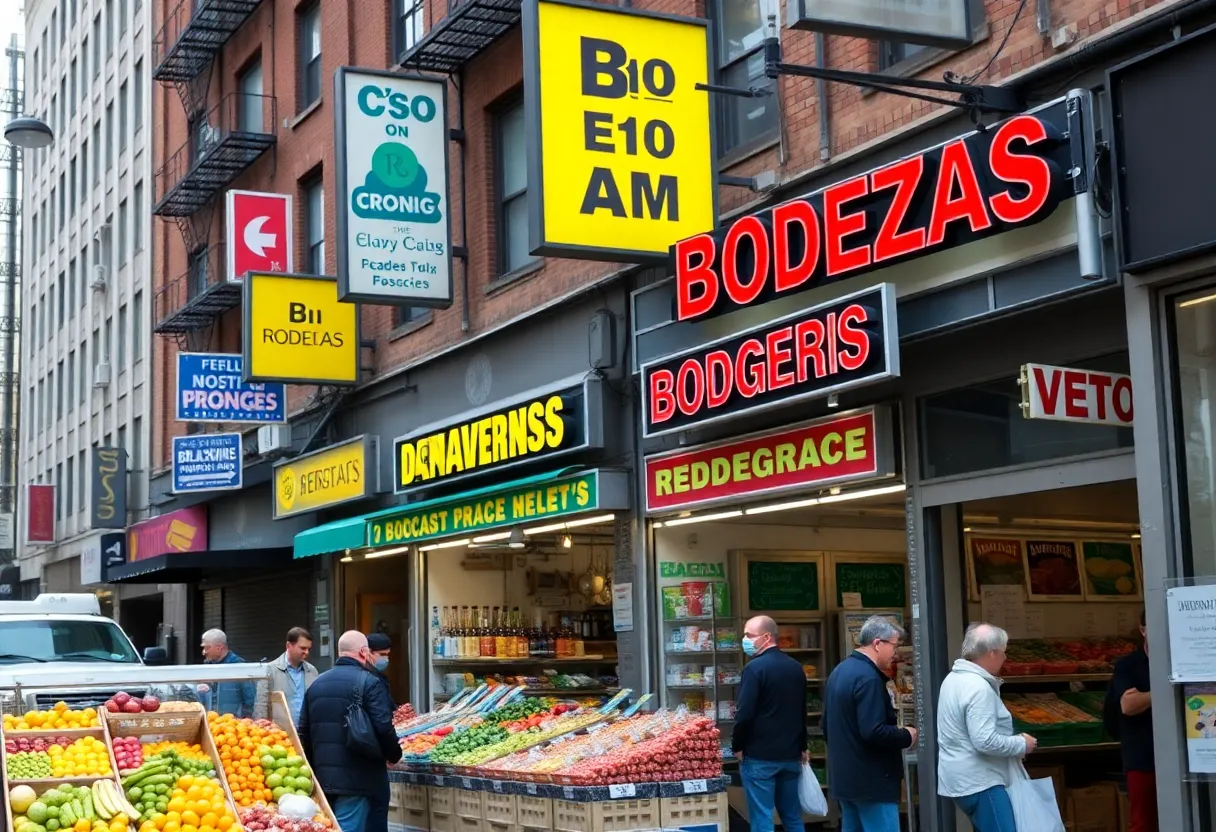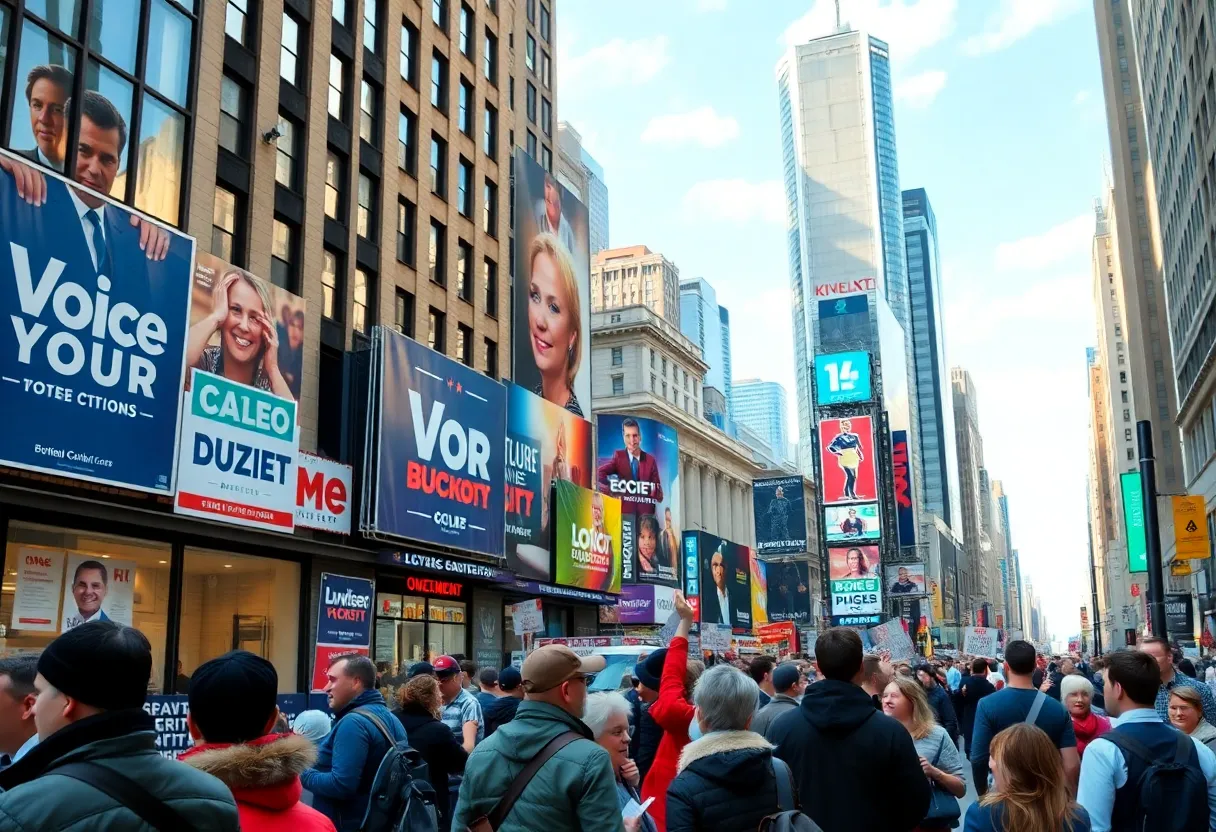News Summary
Bodega owners in New York City are voicing strong opposition to a proposal by mayoral candidate Zohran Mamdani, which aims to create city-owned grocery stores to combat rising food costs. Local bodega leaders worry that government stores could undercut prices and threaten their businesses. Despite these concerns, polls show significant public support for the initiative as a means to provide affordable food access, especially for low-income residents. The proposal echoes broader issues surrounding food insecurity in the city, prompting protests from bodega owners concerned about competition with municipal stores.
New York – Bodega owners and workers are expressing strong opposition to a proposal by Democratic mayoral candidate Zohran Mamdani, aimed at launching city-owned grocery stores across New York City. The initiative has raised alarm bells within the local bodegas, which are small, family-run grocery stores that serve a critical role in their neighborhoods.
Radhames Rodriguez, president of the United Bodegas of America, emphasized that the introduction of government-operated grocery stores would pose an unsustainable threat to existing bodegas. He pointed out that if city-run stores sold items like eggs for $1, while local bodegas had to charge $4, it would severely impact their business viability. Miguel Valerio, another bodega owner from the Bronx, voiced concerns about how the competition would deter customers and potentially jeopardize jobs for his employees, indicating a lack of confidence in government employees managing retail operations effectively.
Mamdani’s grocery store plan aligns with an overarching affordability platform that seeks to reduce food costs for New Yorkers, particularly in the wake of increasing prices post-pandemic. The proposed initiative is budgeted at $60 million and would set up one store in each of the five boroughs of New York City. The pilot program is designed to be evaluated for its effectiveness before any potential expansions occur.
However, many merchants contend that municipal grocery stores could undercut their prices and lead to a significant loss of business. Critics of the initiative have labeled it a “Soviet-style plan,” arguing that it undermines the viability of small businesses in the city. Rafael Garcia, another bodega owner, highlighted concerns that government-operated stores would attract customers reliant on food stamps, further diminishing the patronage of bodegas.
Francisco Marte, the president of the Bodega and Business Association, denounced the proposal, asserting that socialism has failed in various contexts and claiming that the government-run grocery concept is unviable. John Catsimatidis, owner of the Gristedes supermarket chain, added his critique, stating that municipalities typically lack the capability to manage businesses effectively, suggesting that failures in other similar initiatives could be anticipated in New York City.
Other cities across the United States, such as Chicago, have contemplated similar proposals for municipal grocery stores but have opted for public-private partnerships instead. Although the outcomes of past attempts to establish municipal grocery stores in small towns have yielded mixed results, there have been instances of success, like in St. Paul, Kansas, which has operated a government-owned grocery store since 2013.
Mamdani has acknowledged that many New Yorkers are experiencing “sticker shock” due to soaring food prices and emphasized that affordable access to food is essential for low-income residents. Despite the considerable concerns raised by bodega owners, polling data indicates that 66% of New Yorkers support the concept of municipal grocery stores, with 90% expressing significant concern over rising food costs.
In a podcast interview, Mamdani defended his grocery store proposal, framing it as an essential policy experiment aimed at tackling food insecurity in the city. He continues to face resistance from bodega owners who firmly believe that the government should not compete with private enterprises, a point they have made strongly in their public protests. As Mamdani runs for mayor against incumbent Eric Adams and other candidates, he presents this grocery store initiative as part of a broader strategy to address systemic issues related to food access and affordability in New York City.
Deeper Dive: News & Info About This Topic
- New York Post: NYC Bodega Owners Worry About Mamdani’s Grocery Store Plan
- AM New York: Billionaire Supermarket Owner and Bodega Advocates Threatened by Mamdani
- PoliticsNY: Mamdani Painted as a Communist Threat
- The Nation: Mamdani’s Vision for NYC Mayor
- Bronx News 12: Mamdani’s Vision for NYC Grocery Stores
- Wikipedia: Grocery Store
- Google Search: Zohran Mamdani
- Google Scholar: Zohran Mamdani
- Encyclopedia Britannica: Affordable Food
- Google News: Zohran Mamdani Grocery Stores








